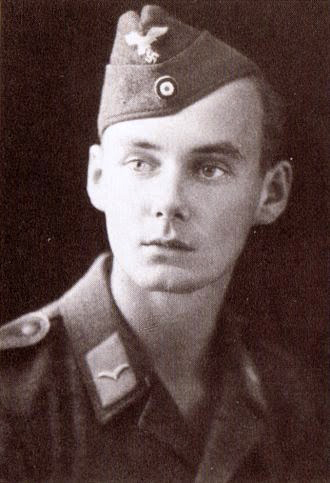Presently I am reviewing the syntax of the first seventy entries I have posted in this site of Karlheinz Deschner’s Kriminalgeschichte des Christentums. Once I finish the review I’ll provide a PDF. The reviewed translation will also be available in book form under the title Christianity’s Criminal History.
 The present book is an abridged translation of the first volume of Karlheinz Deschner’s ten-volume Kriminalgeschichte des Christentums. The original volume with hundreds of endnotes (every quotation is accompanied by the proper reference), and whose first chapter on the Old Testament is longer than our brief excerpts, was published in German in 1986. My hope is that this preliminary translation is only the first step for a more academic translation of Deschner’s magnum opus. Furthermore, in this translation I took the liberty to add several illustrations and even replace many instances of the author’s use of the word ‘pagan’, which is derogatory Christian Newspeak, with terms like ‘Hellenist’ or ‘advocate of Greco-Roman culture’.
The present book is an abridged translation of the first volume of Karlheinz Deschner’s ten-volume Kriminalgeschichte des Christentums. The original volume with hundreds of endnotes (every quotation is accompanied by the proper reference), and whose first chapter on the Old Testament is longer than our brief excerpts, was published in German in 1986. My hope is that this preliminary translation is only the first step for a more academic translation of Deschner’s magnum opus. Furthermore, in this translation I took the liberty to add several illustrations and even replace many instances of the author’s use of the word ‘pagan’, which is derogatory Christian Newspeak, with terms like ‘Hellenist’ or ‘advocate of Greco-Roman culture’.
But why reproduce excerpted passages from Deschner’s opus in the first place?
White nationalists are aware of the Jewish problem. But very few are aware that Jewish subversion is not the product of spontaneous generation but of a religion of Semitic origin: Christianity. Who among the white nationalists knows the real history of Christianity? Who is aware that Christian fanatics destroyed, literally, the Greco-Roman world? As Catherine Nixey put it in The Darkening Age: The Christian Destruction of the Classical World:
In a spasm of destruction never seen before—and one that appalled many non-Christians watching it—during the fourth and fifth centuries, the Christian Church demolished, vandalized and melted down a simply staggering quantity of art. Classical statues were knocked from their plinths, defaced, defiled and torn limb from limb. Temples were razed to their foundations and burned to the ground. A temple widely considered to be the most magnificent in the entire empire was levelled.
Many of the Parthenon sculptures were attacked, faces were mutilated, hands and limbs were hacked off and gods were decapitated. Some of the finest statues on the whole building were almost certainly smashed off then ground into rubble that was then used to build churches.
Books—which were often stored in temples—suffered terribly. The remains of the greatest library in the ancient world, a library that had once held perhaps 700,000 volumes, were destroyed in this way by Christians. It was over a millennium before any other library would even come close to its holdings. Works by censured philosophers were forbidden and bonfires blazed across the empire as outlawed books went up in flames.
Most white nationalists ignore the ISIS-like history of early Christianity right after Constantine handed over the Roman Empire to his bishops. They know only the martyr myths, the pious legends and the lies they told us as children educated in the Christian faith.
Karlheinz Deschner (1924-2014) was a liberal German. He spent the first sixty years of his life investigating the history of the Catholic Church before starting the ten volumes of his Kriminalgeschichte series, which only ended at ninety. It is a more complete treatise, or encyclopaedia I would dare to say, about the real history of Christianity than Nixey’s The Darkening Age.
I started reading Deschner in 2002 when I was also a liberal. I would not wake on the Jewish question until 2010. But Deschner, like all Germans of our times who aspire to see their books in the bookstores, never woke up. He even criticised the most notorious ‘anti-Semites’ in early Church history. This said, the difference between Deschner and liberal theologians like Hans Küng (The Church) and conservative historians like Paul Johnson (A History of Christianity) is that Küng and Johnson concealed a great deal of Christianity’s criminal history. It is remarkable how a scholar who abandoned Christianity, like Deschner, was capable to criticise it in a way that Küng, Johnson, and the most prominent Christian intellectuals would never dream of.
After awakening to the realities of the Jewish problem I realised that Deschner’s information, despite his mistaken point of view, can be rescued. It only has to be processed through the filter of someone who has awakened on the Jewish question. Had Germany won the war, Deschner, who appears in a previous page in Nazi uniform, could have written his history from the National Socialist point of view.
C.T.
July of 2018
One reply on “Editor’s preface”
I’ve just added this paragraph to my Preface: